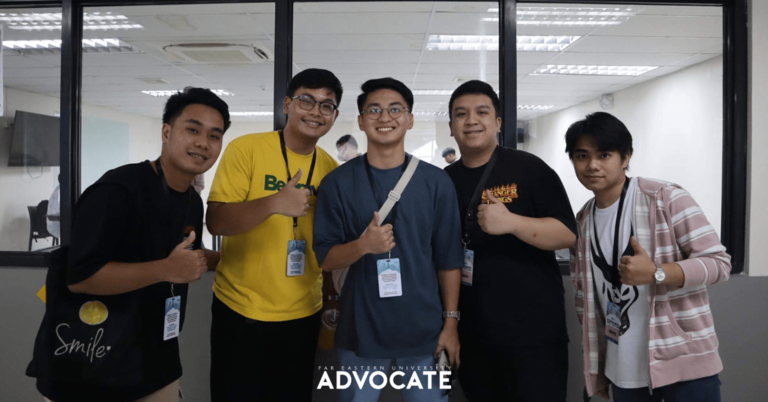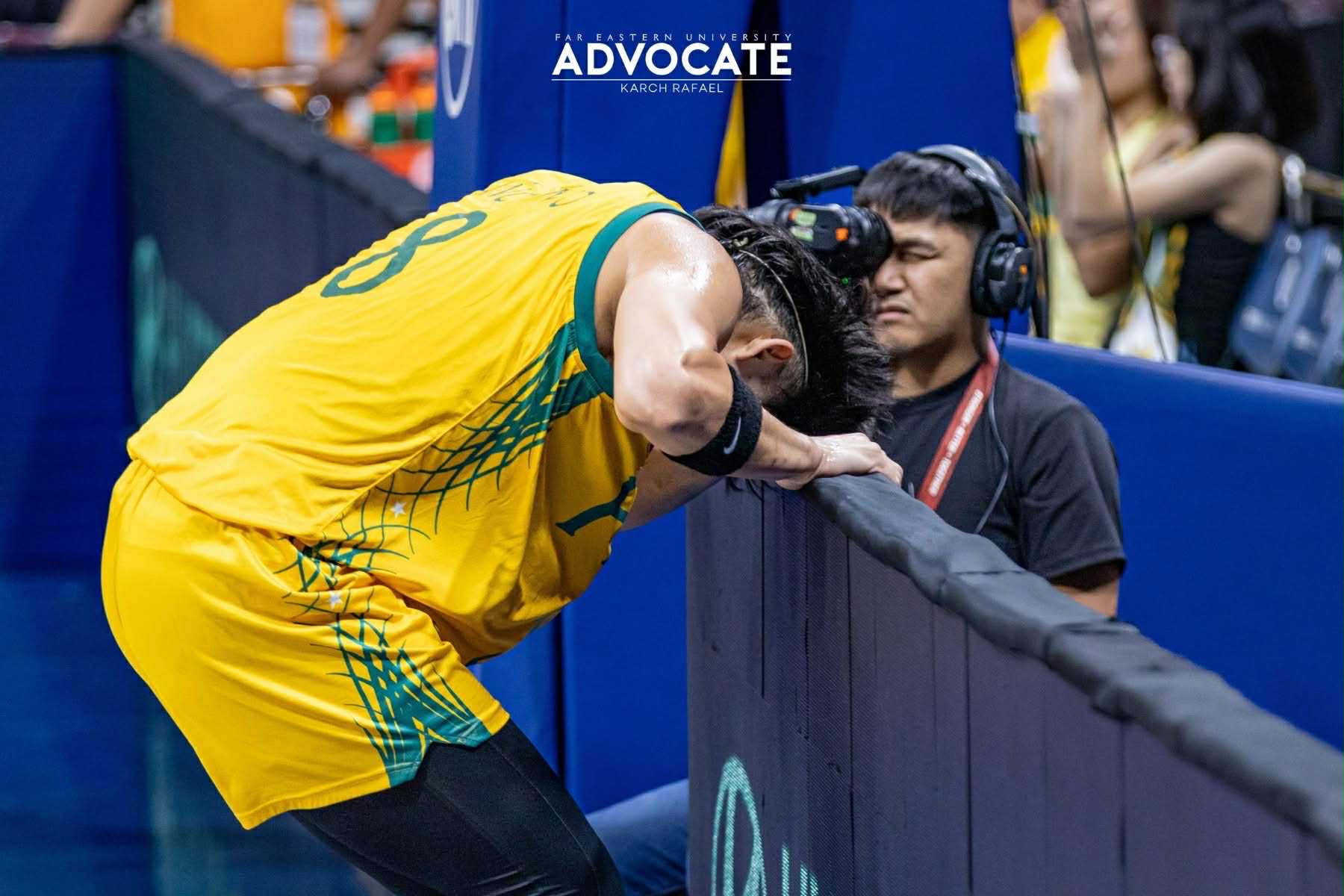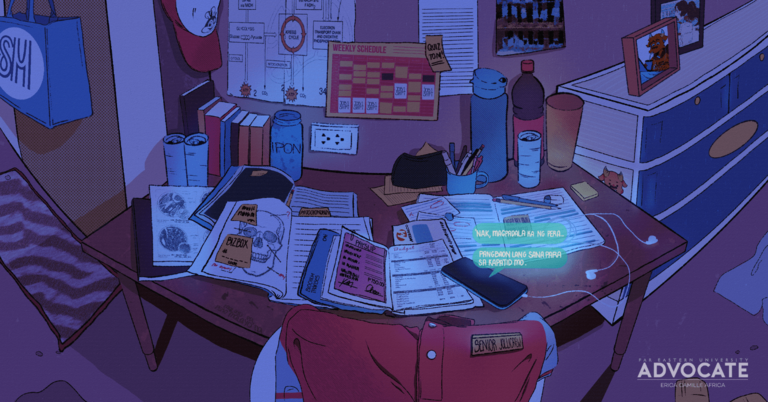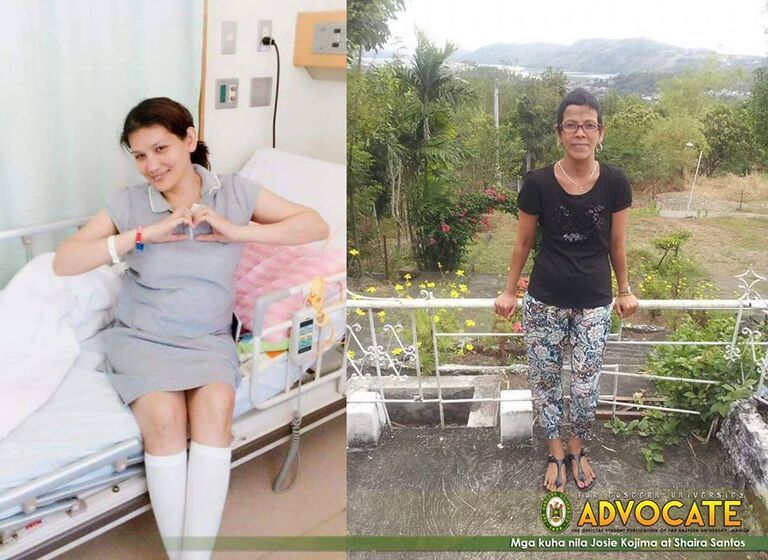
Late rotation adjustment works for FEU against undermanned NU, opens season with a win
- February 17, 2019 11:06
FEU Advocate
November 07, 2025 09:00

By Franzine Aaliyah B. Hicana and Cassandra Luis J. De Leon
When a condominium worker collapsed outside his workplace, help should have come right away. But as nearby barangays declined to assist and no ambulance arrived, second-year Far Eastern University (FEU) student nurse Alexandra Ortega refused to stand by—stepping in to save a stranger’s life when the system failed to respond.
When duty calls
Last October 27, coinciding with the National Nurses’ Week, Ortega’s professor posted the student’s selfless act, praising her compassion and encouraging others to “be like Alexandra.”
In an online interview with FEU Advocate, the student nurse recounted what happened on the night the photos were captured.
“Pauwi na po kasi ako noon… Napansin ko po na si Kuya na tinulungan ko po ay nakaupo po sa gilid with his right hand, holding his chest tightly… I can tell na nasasaktan siya kasi ‘yung facial expression niya po showed clear signs na he’s in pain and nakapikit din po siya noon sa sakit,” she said.
Moved by concern, Ortega extended her help after seeing the man’s condition despite her initial hesitation.
“Nahiya din po ako at first mag-approach kasi baka sabihin po OA [overacting] po ako, kaso po nakita [ko] po kasi siya trying to move po tapos naawa po ako, kasi nag-try siya maglakad pero ‘di na siya nakatayo. Naglakad siya habang naka-bent down with the support of his left hand. Kaya ayun po, sinaklolohan ko po agad kasama po ‘yung girlfriend ko,” the nursing student explained.
Furthermore, when Ortega noticed the redness of the worker’s eyes, it prompted her to check his vital signs, including his pulse rate, temperature, and blood pressure.
As the nursing student continued to monitor the patient’s condition, she noticed his situation worsening and felt an increasing sense of urgency.
“Habang tumatagal po, nag-i-i-spit na po siya ng laway… Mas lumalabas po ‘yung instinct ko na he’s having cardiac arrest symptoms po. Kaya po ayun nakisuyo po ako sa guards ng condo at mga kasamahan ni Kuya na bantayan muna siya dahil hihingi po ako ng tulong,” she recounted.
For her, helping that night was not a matter of hesitation—it was instinct. Having served her duty hours in the emergency room, she knew that life and death often strike without warning. She understood that in her chosen profession, readiness is not optional but a responsibility she carries every day.
“Duty po kasi ako sa [emergency room], and because of that po, mas naging malinaw po sa’kin na walang pinipiling oras po ang chance na puwedeng mamatay [ang] isang tao, kaya po kailangan laging handa lalo na po sa tini-take ko pong profession,” Ortega said.
That sense of duty was reinforced by the oath she and her fellow student nurses took during their capping ceremony; a promise to always put the needs of others first. It was a commitment that guided her decision that night, when others might have chosen to stay back.
Yet what truly pushed her to act came from a deeply personal place. She recalled how, back in 2020, her own mother nearly went into cardiac arrest. Seeing the same signs in the man she helped brought those memories flooding back. She knew exactly what it felt like to stand helplessly on the edge of losing someone you love, and she could not bear the thought of another family feeling that same fear.
“Alam ko po kasi ‘yung pakiramdam nang may relative ka na puwedeng mawala at any minute,” she shared.
Motivated by that feeling, she immediately acted and sought further help. But frustration grew as help did not come easily.
It was in those tense moments that she realized how unprepared some people and even institutions could be in emergencies. The lack of coordination and willingness to act weighed heavily on her, testing not only her composure but her faith in the system meant to protect lives.
A call unanswered
For Ortega, it was understandable if bystanders froze or did not know what to do. What disheartened her was the inaction of those in authority, who had both the position and the means to help but chose not to. It was a disappointment that lingered even after the chaos settled.
Despite it all, she stood her ground acting not just as a student nurse fulfilling her duty, but as someone who simply refused to turn away when compassion was needed most.
Even with her training and determination, frustration soon crept in. After checking the man’s condition and seeking assistance, she found herself running from one barangay to another, only to be turned away twice. The disappointment deepened when the police also hesitated to act.
She admitted feeling helpless at that moment, especially when time was critical and every minute could have made a difference.
“Lalo na noong dalawang barangay na po ‘yung pinuntahan at hindi po kami natulungan. Tapos, noong time na parang ayaw pa po kami tulungan ng MPD [Manila Police District] kaya naggalit-galitan po ako,” the nursing student recalled.
She shared how disheartening it was to hear excuses instead of seeing action. Barangay officials, she learned, could not accommodate the case because the patient was not from their area and they had no medic on duty. It was a realization that left her both disappointed and worried about how many others might experience the same neglect.
“Nakaka-disappoint lang po, kasi sa ganoong situation po, ang inaasahan ko po sanang unang makaka-extend ng kamay ay ang mga barangay dahil part sila ng government,” the student nurse explained.
The situation revealed the painful truth that despite the promises of public service, the system meant to protect and support its people often fails them in their most vulnerable moments.
Reflecting on the incident, Ortega could not help but express her dismay with how those in authority handled the situation.
“I felt really disappointed seeing how the system responded. Parang nakakapanlumo po na sa isang sitwasyon na life and death na, hindi pa rin naging makatao ang naging dahilan o aksiyon ng mga dapat sana ay unang tumulong… Dahil sa nangyari, mas lalo pong nadagdagan ‘yung frustration ko sa nakikita kong corruption at kakulangan ng malasakit sa bansa natin,” she stressed.
Moreover, the nursing student called for proper and adequate allocation of the public funds, asserting that the taxes paid by Filipinos should be reflected in accessible and reliable healthcare services.
“Ang sakit at kamatayan, hindi ‘yan namimili ng oras o lugar. Sana lang matutunan ng gobyerno na pahalagahan ang kalusugan at buhay ng bawat mamamayan katulad ng kung paano pinaghihirapan ng bawat Pilipino ang buwis na ipinagkakatiwala sa kanila,” Ortega asserted.
Upon arriving at the Manila City Hall’s Municipal Disaster Risk Reduction and Management Office, the responders immediately assisted the man, and after confirming that an ambulance had been called, the student nurse left.
After everything she witnessed that night, her realizations went beyond what happened in that single moment. It became an experience that made her rethink not just what she did—but who she wants to become as a future nurse.
Rekindling purpose amid a failing system
The incident left a lasting mark on her, shaping how she views her role in the medical field.
“This experience really changed how I see my role as a future nurse. Mas lalo akong naging seryoso at motivated na mag-double effort sa pag-aaral at i-practice lahat ng itinuturo sa school. Gusto ko kasi pagdating ng time na maging nurse na ako, matulungan ko nang maayos at may malasakit [ako sa] lahat ng magiging pasyente ko,” she shared.
It was a moment that reminded her that nursing goes beyond technical skill; it is about genuine care and empathy for others.
“The biggest lesson I learned from this experience is the true meaning of compassion and dedication sa pagiging future nurse. Natutunan ko na hindi lang sapat na marunong ka sa skills, kailangan marunong ka ring makiramay at magbigay ng puso sa bawat ginagawa mo. Kasi sa huli, hindi lang knowledge ang nakaka-heal, kun’di ‘yung genuine care at malasakit mo sa pasyente,” she emphasized.
For Ortega, the experience became a lesson that compassion goes beyond skill—that caring for others means acting even when it is inconvenient or uncertain. Yet, her story also exposed the gaps in a system that should have acted faster. While one student stepped up without hesitation, the very institutions meant to respond faltered instead. It is a reminder that empathy should not only come from individuals like her, but from the systems built to protect the public in the first place.
(Photos courtesy of Alexandra Ortega)









